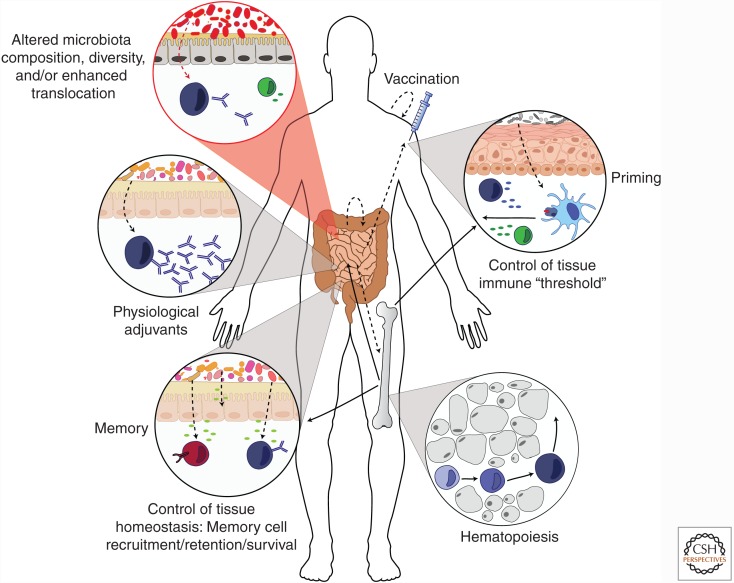Figure 1.
Influence of commensals on vaccine responses. Commensal bacteria influence the immune response in a number of ways, with these effects mediated either locally or from distal sites. Such influences include the promotion of hematopoiesis in bone marrow progenitor cells, which can then migrate throughout the body. In peripheral tissues such as the skin and gut, the microbiota can regulate the “immune threshold” of innate cells such as antigen-presenting cells or epithelial cells, allowing for rapid and efficient responses on activation. During a response to vaccination, commensals can directly promote the function of the adaptive immune system, such as by providing a source of physiological adjuvants in the gut that promote the production of antibody by B cells. Following the peak of a response, commensals may also be involved in creating an environmental niche within tissues that allow for the recruitment, development, and survival of long-lived memory cells. In addition (red circle), an altered relationship with the microbiota (e.g., decrease in microbial diversity or increase microbial translocation) of the gut microflora in settings of malnutrition and/or chronic infections could result in heightened systemic inflammation leading to blunted immune responses to vaccines. Solid lines, immune cell movement; dotted lines, microbiota effect.

